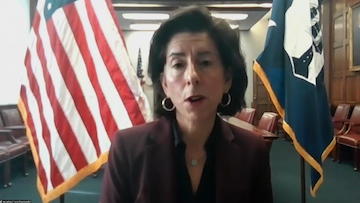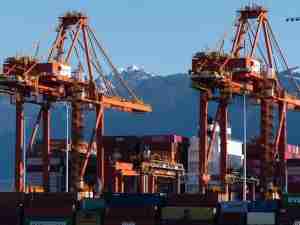The U.S.’s tariffs on metals imports from China have helped even out competition for the nation’s steel and aluminum producers despite creating problems for other industries, Commerce Secretary Gina Raimondo said.

“Those tariffs have worked, insofar as they have leveled the playing field,” Raimondo said in an interview to be broadcast on Bloomberg Television Thursday. “I’m not saying that they’re perfect—they’ve created other challenges.”
The Trump administration implemented a 25% duty on steel imports and 10% on inward-bound shipments of aluminum three years ago using section 232 of the 1962 Trade Expansion Act, which allows for the levies without a vote by Congress if imports are deemed a national-security threat. The former president said the tariffs were needed to protect the domestic industry from going under.
The benefits of the duties remain unclear. Most end-users—from Caterpillar Inc. and Whirlpool Corp. to Harley Davidson Inc. and Molson Coors Beverage Co.—have complained that the tariffs raise their raw-materials costs, cutting into profits.
The steel industry has been very vocal in recent months that the new administration needs to work with trade allies to force countries like China to cut down on overcapacity that is depressing global prices.
“The fact of the matter is China doesn’t play fair, it does whatever it takes, so we need to use the tools in our toolbox to level the playing field so American workers have a shot,” Raimondo said.








